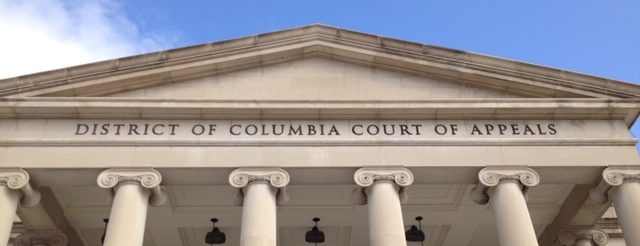
On the “buyer’s agent” defense in Simms
There is a “buyer’s agent” defense in D.C. after all – at least with respect to drug distribution charges involving marijuana.
We used to rely on the “buyer’s agent” defense when I practiced in Philadelphia. Simply put, this is the defense that your client was not dealing drugs. He was simply helping an interested buyer connect with a person who was selling them.
So I was disappointed to find upon moving my practice down to the District that the defense was generally not recognized in this jurisdiction. As the D.C. Court of Appeals put it in Minor v. United States, 623 A.2d 1182, 1186 (D.C. 1993), “the law is clear that being an agent of the buyer is not recognized as a valid defense to a charge of distributing a controlled substance.”
The legalization in 2014 of the possession of a small amount of marijuana (less than two ounces) in D.C. has now changed this – at least with respect to marijuana.
The defendant in Simms v. United States, 244 A.3d 213 (D.C. 2021) was charged with unlawfully distributing marijuana after he facilitated a transaction between an undercover police officer and a person selling marijuana. The undercover officer approached Simms and told him he was trying to buy marijuana. Simms did not ask him how much he wanted to purchase. Nor did he express any interest in helping him obtain it. But Simms did direct the officer to where marijuana was being sold “up at the store” and he did agree, when asked, to take the officer to a takeout called America’s Best Wings. Simms also handled the actual physical exchange of $20 for the small amount of marijuana.
Simms’ purchase of the small amount of marijuana and his transfer of the marijuana to another person were both legal under the new law. However, because Simms had “associated himself” with the sale of the marijuana, he had aided and abetted a transaction that was unlawful for the seller to make.
In an opinion written by Associate Judge Stephen H. Glickman, the D.C. Court of Appeals overturned the conviction.
The Court held that, although aiders and abettors in D.C. are in fact treated the same as the principals in a criminal offense, an accomplice, in order to be held criminal culpable, “must be concerned in the commission of the specific crime with which the principal defendant is charged; he must be an associate in guilt of that crime.” (Emphasis in original): This “purpose-based” standard requires “proof that the accomplice intended to help the principal to commit the charged offense.”
The prosecution was unable to satisfy that burden in this case. Specifically, the prosecution was not able to prove that Simms’ “acted with the purpose . . . to help the seller make the unlawful sale.” There was no evidence, for example, that Simms was posted there to connect potential buyers with the seller. Nor did Simms do anything else to suggest that he was part of the seller’s distribution operation: “In fact, it appears [Simms] would have been perfectly content to point the officer to America’s Best Wings and let him buy the marijuana there on his own.”
D.C. Superior Court judge Danya Dayson presided at trial. Joseph McCoy represented Simms at trial. Anna Scanlon and Rupa Ranga Puttagana handled the appeal.
